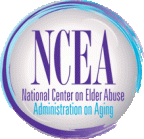Elder abuse is a violation of human rights and a significant cause of illness, injury, loss of productivity, isolation, and despair. – World Health Organization, United Nations
Because of the increasing older adult world population and because the oldest old group is growing the fastest, the prevalence of elder abuse is increasing. In 2006, the International Network for the Prevention of Elder Abuse and the World Health Organization at the United Nations designated June 15th as World Elder Abuse Awareness Day. Since then, the U.S. Administration on Aging (now the Administration for Community Living or ACL), has recognized the day and has used the event to encourage organizations throughou t the country to promote prevention of elder abuse. This year the ACL has issued a useful publication in .pdf entitled, “How to Answer Those Tough Questions About Elder Abuse”. It provides information about the nature of the problem and how to address it at individual and organizational levels.
t the country to promote prevention of elder abuse. This year the ACL has issued a useful publication in .pdf entitled, “How to Answer Those Tough Questions About Elder Abuse”. It provides information about the nature of the problem and how to address it at individual and organizational levels.
Elder abuse takes many forms. It can involve neglect (failure to provide for the basic necessities of life or to respond to potentially harmful situations); emotional abuse (in which a person is harassed or demeaned); physical abuse (in which a person’ health or welfare is harmed or they are given inappropriate medications or substances); sexual abuse (unwanted, intimate touching or looking); exploitation (involving improper use of an individual’s finances, property or personal dignity); or self-neglect (in which a person does not care for him- or herself so as to avoid harm).
In all cases, if the person at risk is able to understand the consequences of continuing abuse, then they have a right to refuse intervention if they choose. However, I believe that means thoroughly discussing all the possible outcomes of staying in the abusing situation, so that the person wishing to intervene is absolutely clear that the person at risk is making an informed choice. It also means discussing alternatives, so that the person at risk knows what shelter, protection, benefits and services they may reasonably be able to employ in order to improve their life situation. Abused adults often refuse help out of shame, the belief that they are to blame for the abuse, fear of retaliation, psychological denial of the abuse, and/or the fear of going from one bad situation to another. Without information about housing, services, financial support, transportation, and protection, the abused individual can’t make a rational judgement about whether there is any expectation that their basic needs can otherwise be met.
 Most states have laws addressing elder abuse. The National Center on Elder Abuse (NCEA) has a helpful resource for finding out about reporting and laws in a given state or territory. In Michigan, elder abuse is covered under the Public Act 175 of 2012 [Social Welfare Act, MCL 400.11(b)]. Many groups of professionals are required by law to report suspected abuse in Michigan: individuals involved in health care services, educational services, social welfare providers, mental health services, any other human services, law enforcement officers, and county medical examiners and their employees. The Department of Human Services will maintain the reporter’s anonymity, unless legally required to divulge it. How do you know when elder abuse may be occurring? The NCEA has another useful document called, “Red Flags of Abuse”, which describes behaviors and signs that suggest the likelihood of neglect, abuse, or exploitation.
Most states have laws addressing elder abuse. The National Center on Elder Abuse (NCEA) has a helpful resource for finding out about reporting and laws in a given state or territory. In Michigan, elder abuse is covered under the Public Act 175 of 2012 [Social Welfare Act, MCL 400.11(b)]. Many groups of professionals are required by law to report suspected abuse in Michigan: individuals involved in health care services, educational services, social welfare providers, mental health services, any other human services, law enforcement officers, and county medical examiners and their employees. The Department of Human Services will maintain the reporter’s anonymity, unless legally required to divulge it. How do you know when elder abuse may be occurring? The NCEA has another useful document called, “Red Flags of Abuse”, which describes behaviors and signs that suggest the likelihood of neglect, abuse, or exploitation.
Elder abuse is grossly under reported. Those who are abused are intimidated or unable to report. They may already feel unworthy of better treatment because of internalized ageism and may be emotionally attached to the abusive situation due to the Stockholm syndrome. Most of the rest of us don’t want to believe it can be happening around us. However, the most common perpetrator of elder abuse is a friend or relative. We need to be more aware of this problem and its signs, and report suspected abuse.
In Michigan, notify the Department of Human Services (DHS), Adult Protective Services: http://www.michigan.gov/dhs Statewide 24-Hour Hotline: 1-855-444-3911
If you suspect abuse, neglect or exploitation of a resident of a nursing home by another resident or by a nursing home employee, notify: Bureau of Health Services Abuse Hotline: 1-800-882-6006
Michigan Protection and Advocacy Service, Inc.: Developmental Disabilities: 1-800-288-5923
Mental Illness: 1-800-288-5923
Attorney General 24-hour Health Care Fraud Hotline: 1-800-24-ABUSE / 1-800-242-2873
Sue Sweeney, Chair, Department of Aging Studies, Madonna University